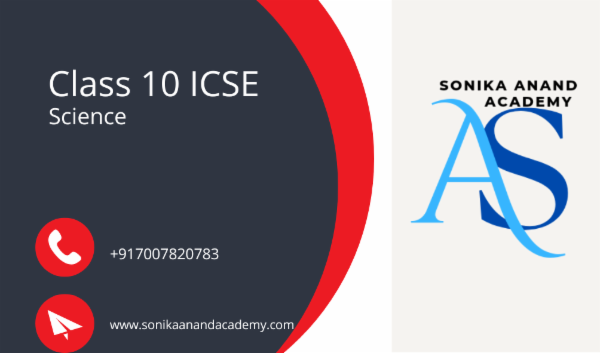
Class 10 Science ICSE Board
1 module
English
Lifetime access
<p>Ignite Your Curiosity and Master Science with Confidence: A Comprehensive Course for Class 10 Students of ICSE Board.</p>
Overview
Description:
This course provides comprehensive coverage of Science for Class 10 students studying under the ICSE board. It is designed to help students understand and appreciate the fundamental concepts of Science and develop a strong foundation in the subject.
Key Highlights:
- Thorough explanation of all topics prescribed in the ICSE Science syllabus
- Engaging and interactive video lessons
- Chapter-wise practice exercises and quizzes
- Detailed explanations of important concepts
- Regular assessments to track progress
- Expert guidance and support for better understanding
What you will learn:
- Introduction to Physics
(ii) Electrical power and energy
Modules
Physics
74 attachments • 13 hrs
Doubt Session
16 march
Machines
part 1
Machines part 2
Force
Moment of force and Equilibrium@sonikaanandacademy
centripetal force and centrifugal force @sonikaanandacademy
Work Energy and Power
potential energy
kinetic energy ||@sonikaanandacademy
power numerical @sonikaanandacademy
Machines
Refraction of Light at Plane Surace
Refraction of light || physics@sonikaanandacademy
what is refractive index@sonikaanandacademy
refractive index|| numerical@sonikaanandacademy
Lateral displacement | refraction of light |@sonikaanandacademy
critical angle and refractive index |@sonikaanandacademy
prism ||Relation between angle of prism to angle of minimum deviation@sonikaanandacademy
Relation between refractive index and prism formula@sonikaanandacademy
total internal reflection|refraction of light|@sonikaanandacademy
total internal reflection in prism| refraction of light |@sonikaanandacademy
Refraction Through lens
refraction of lens @sonikaanandacademy
how to differentiate convex and concave lens||Sonika Anand Academy
Ray diagram of lenses@sonikaanandacademy
refraction of lens Numerical @sonikaanandacademy
Ray optics Numerical@sonikaanandacademy
Light MCQ @sonikaanandacademy
Spectrum
spectrum@sonikaanandacademy
spectrum || numericals @sonikaanandacademy
light shambavi
class 1
Sound
Current Electricity
Types of Charges@sonikaanandacademy
Electricity @sonikaanandacademy
electric current@sonikaanandacademy
numerical of current @sonikaanandacademy
Electricity Numerical
Electricity Numerical on Current
Numerical On Potential Difference
what is potential Difference || numerical on potential difference
Electricity||Potential Difference @sonikaanandacademy
Ohm ' s law || Electricity Theory and numerical
Numerical on Ohms Law
Electricity Numerical Ohms law
how to find the equivalent resistance when connected in series@sonikaanandacademy
Combination of Resistance || Electricity || Numericals
Numerical on Resistance @sonikaanandacademy
electricity ||numerical on ohm's law @sonikaanandacademy
specific resistance and conductance
power @sonikaanandacademy
heating effects of current|| class 10 ||numerical in physics
Class 10 Cbse Term 2 Mock Test Series For Electricity @sonikaanandacademy
Model Test Paper
Electricity||combination of Resistance @sonikaanandacademy
Electromagnetism
Orested Experiment
Lorentz Force
Faraday law
Electric Motor @sonikaanandacademy
Calorimetry
Heat and thermodynamics|specific heat numerical@sonikaanandacademy
physics heat and thermodynamics ||calorimetry@sonikaanandacademy
24 heat shambhavi
26
Radio Activity
atomic structure || isotope and isobar
radioactivity @sonikaanandacademy
Radio activity ||soddy Fazan Rule @sonikaanandacademy
soddy fazan law
Rate this Course
Order ID:
This course is in your library
What are you waiting for? It’s time to start learning!

Wait up!
We see you’re already enrolled in this course till Lifetime. Do you still wish to enroll again?
